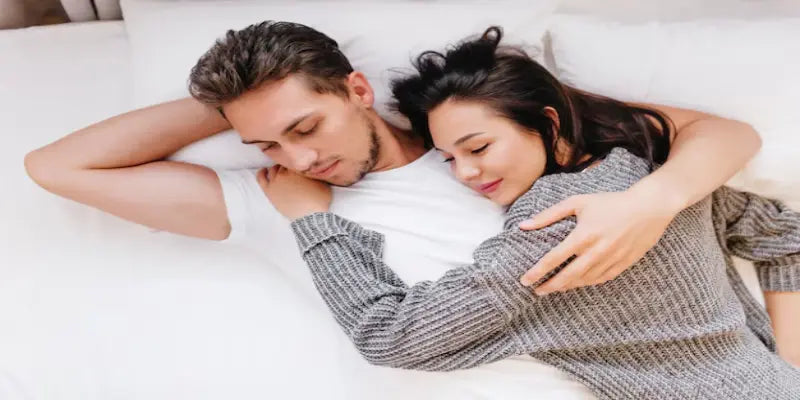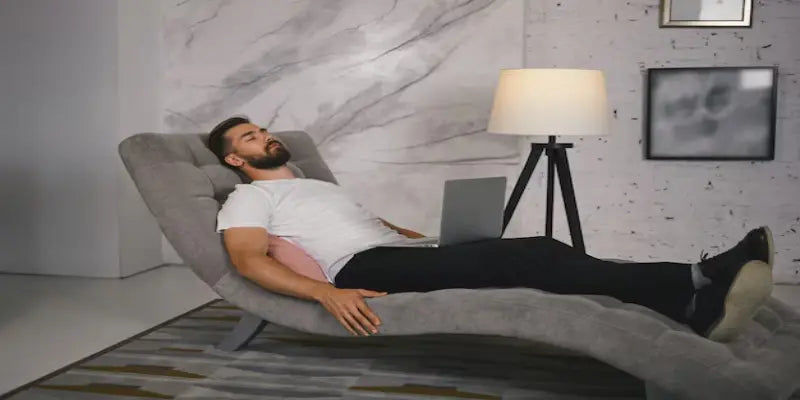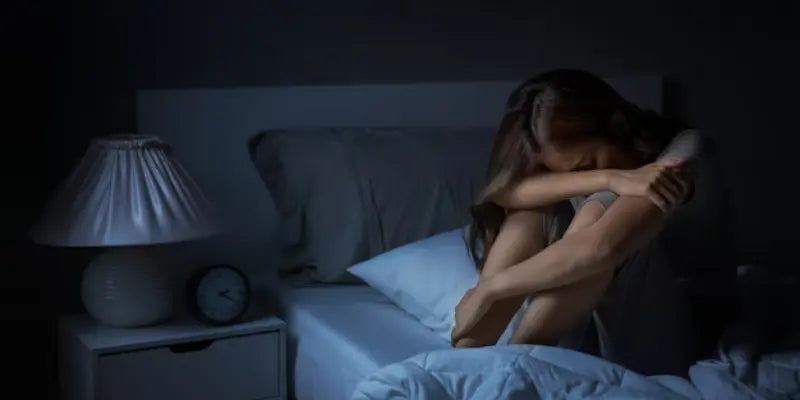
Which is the Best Natural Sleep Aid?
You've followed the suggested ideas for getting enough sleep. You maintain a regular sleep routine, avoid coffee and afternoon naps, and exercise regularly. You also avoid using illuminated screens before bed and control stress. Still, it's been days since you got a good night's sleep.
If you have difficulties falling or staying asleep on a regular basis, you should see your doctor. The treatment depends on what is causing your sleep deprivation. Prescription sleeping pills could help you fall asleep faster, stay asleep longer, or both. The risks and benefits of different prescription sleeping medications could vary.
In this blog, we’ll explore some most widely used natural sleep aids for better sleep. Most of them are available online but it is advised to consult your doctor first.
Best Supplements for Sleep
Here are some of the best sleep supplements recommended by doctors. Don't take any supplements with a doctor's prescription as it can have negative effects if taken in the wrong amount.
Melatonin
The pineal gland in our brains produces melatonin, a hormone that regulates sleep. It is important in controlling our circadian rhythms, which are the 24-hour sleep-wake cycles that determine when we get up, feel alert, fatigued and sleep.
Melatonin production can be decreased by a number of circumstances, including nighttime light exposure, aging, and certain disorders. Because low melatonin levels can induce sleep problems, many people take supplementary melatonin.
While a few other research have concluded that melatonin has no effect on sleep, there are few in general. Those that have found positive benefits usually give people 3-10 milligrams (mg) of melatonin before bedtime.
Melatonin supplements seem to be safe for adults to use for short periods of time, although more research is needed on their long-term effects. In addition, melatonin is not suggested for pregnant or nursing women due to insufficient evidence on its safety and effectiveness.
Valerian Root
Valerian is a natural sleep aid produced by the roots and stems of the valerian plant. Consuming 300 to 600 milligrams of valerian up to an hour before bedtime will help people fall asleep and improve their sleep quality. However, it's a small percentage. This natural sleep aid can be an excellent choice for people who face sleep problems during the menopausal phase.
Valerian's sedative effects can stay longer, which leads to morning tiredness. People should not drive or operate machinery after taking valerian, nor should they take it with alcohol or sedative medications. Valerian can have side effects such as irregular heartbeat, dizziness, upset stomach, and headaches. While rare, there have been reports of liver injury connected with valerian.
Magnesium
Magnesium is a mineral that plays an important part in hundreds of human bodily activities, including brain function and heart health. Also, magnesium may help calm the mind and body, making it easier to fall asleep. While most studies use doses of 225-729 mg daily, you shouldn't take more than 350 mg per day unless directed by a healthcare expert.
Magnesium-rich foods are whole grains, avocados, bananas, nuts, seeds, beans, and milk. However, some people prefer to increase their magnesium intake with dietary supplements.
Magnesium supplements have few side effects when used as directed. However, some people get diarrhea after taking magnesium.
L-Theanine
L-Theanine, an amino acid found naturally in tea leaves, is thought to be responsible for the sense of serenity that many people feel after drinking tea. A study suggests that L-Theanine supplementation can lower stress and anxiety, promote relaxation, and improve sleep.
Taking a daily pill with up to 200 mg of L-theanine could help with sleep and relaxation. Studies show that it could be more effective when paired with GABA or magnesium. Many sleep aids have a negative effect of increasing daytime sleepiness, however L-Theanine seems not to have this impact.
L-theanine doesn't seem to help people fall asleep, but it may improve sleep quality by reducing the number of times they wake up during the night. This suggests it could be an excellent option for people who wake up often during the night or have sleep-maintenance problems.
Glycine
Glycine is an amino acid and neurotransmitter that regulates metabolism, nutrient absorption, prevention of illness, and sleep. The human body gets glycine naturally, either through chemical reactions or by the consumption of foods such as beans, meat, and milk.
It is unsure exactly how this works, but glycine is believed to act in part by lowering body temperature at bedtime, signaling that it is time to sleep. Taking a small amount of glycine before bedtime could improve sleep quality and reduce daytime tiredness in those suffering from insomnia symptoms. Glycine is available in pill form or as a water-soluble powder. Taking up to 0.8 g per kilogram of body weight per day appears to be safe, but more research is needed.
You can also enhance your glycine intake by eating foods rich in the vitamin, such as animal products including bone broth, meat, eggs, chicken, fish, and beans/legumes and leafy greens spinach, kale, cabbage, and fruits like bananas and kiwis.
Passionflower
Passionflower, also known as Passiflora incarnata or maypop, is a common herbal treatment for insomnia. Passionflower species that are linked to better sleep are native to North America. They are currently grown throughout Europe, Asia, Africa, and Australia.
Passionflower produces a sleep-promoting effect. However, its effects in humans seem to depend on the form eaten. Passionflower tea or extract helps some people improve their sleep quality. However, data is mixed, with certain studies finding no effects. Thus, more research is required.
Cannabis
Cannabidiol, also known as CBD, is a hemp-derived chemical found in a number of products such as oils and capsules. CBD products do not produce the same high as other cannabis products because they contain less tetrahydrocannabinol (THC), the psychoactive component in cannabis.
Some natural sleep aids contain natural or synthetic cannabinoids, such as delta-tetrahydrocannabinol (THC) and cannabidiol (CBD). A number of studies suggest that THC and CBD, alone or in combination, can help some people fall asleep, stay asleep, and have better quality sleep.
The effects of cannabis vary significantly depending on the substance and dosage. Cannabinoids have the potential to react to a number of different drugs and shouldn't be mixed with sedatives. Cannabinoids-containing sleep aids are not always helpful for those suffering from glaucoma, liver illness, or Parkinson's disease.
Are Natural Sleep Aids Safe?
Even though a lot of people connect the word "natural" with safety, natural sleep aids can pose risks. Before you start using a sleep supplement, there are a few things you should keep in mind.
Before using any herbal or over-the-counter drugs for sleep, consult with a doctor, especially if you are using blood thinners. Natural sleep aids are not suggested for people who have certain medical conditions. Also, many dietary supplements aren't recommended for children, older people, or those who are pregnant or breastfeeding, as evidence of their safety could be not enough in those who are most at risk.
The side effects related to specific sleep aids are given below. Some of these side effects were documented only anecdotally, in a few trials, or were detected exclusively in people who took high doses.
- Melatonin has minimal side effects like headache, nausea, and dizziness.
- Valerian root causes diarrhea, headaches, nausea, and heart palpitations.
- Magnesium can cause diarrhea, nausea, and vomiting with high doses .
- Passionflower can cause dizziness and confusion in rare cases .
- Glycine causes soft stools and stomach pain in relatively rare circumstances.
- Tryptophan causes mild nausea and vomiting.
People who are pregnant or nursing should see their doctors before using these or any other supplements. Most supplements should be avoided by such people because there is little evidence to support their safety during these life stages.
Conclusion
If you are interested in trying these supplements, most of them are available online in a variety of forms. Remember that getting enough sleep is just as important for your health as eating well and exercising regularly.
However, many people have difficulty going to sleep, wake up often, and don't feel rested when they awake. This makes it difficult to maintain optimum health and well-being. Before taking any drugs, try implementing appropriate sleep habits into your daily routine, such as keeping devices out of your bedroom and reducing consumption of coffee before bedtime.
If you're considering taking a natural sleep aid, consult a doctor first. Your doctor will look at your current medical conditions, medications, family history, and symptoms and help you in choosing the optimal sleep aid. Your doctor can also advise you on when and how much sleep aid to take to make sure you get enough sleep.
If you are having difficulty falling asleep on your old pillow, you can invest in a high-quality pillow. If you want a pillow that provides both support and comfort, a memory foam pillow is the perfect option. Memory foam pillows are highly comfy and help relieve pressure on your neck. During sleep, the material fits to the shape of your head and neck, providing comfort.








